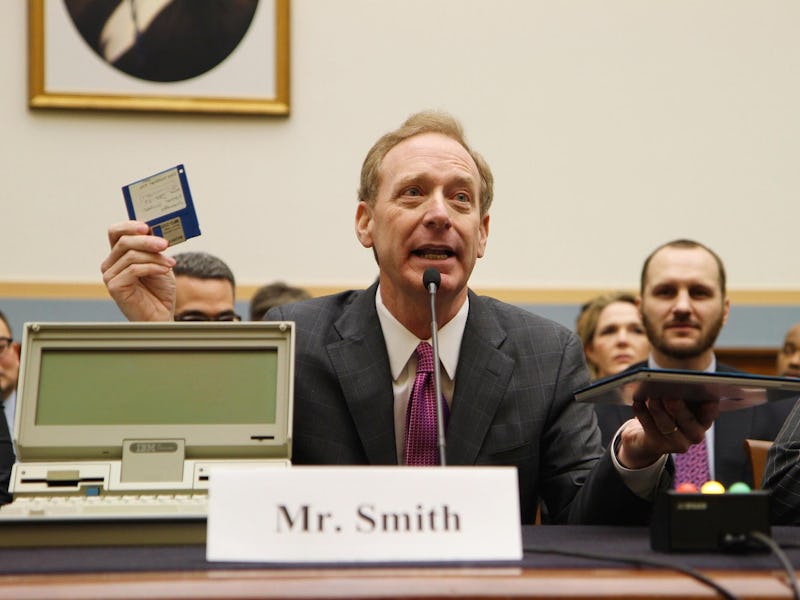Microsoft President Exhorts Congress to Scrap Antiquated Tech Laws
"We need 21st-century laws that address 21st-century technology issues."

The president and chief legal officer of Microsoft, Brad Smith, argued this week before a U.S. House Judiciary Committee that current laws about government access to personal data are woefully antiquated. Smith also reiterated Microsoft’s support for Apple and confirmed that his company would be filing an amicus brief in its pending case against the FBI.
To bolster his arguments, Smith exhumed some vintage tech: an adding machine from 1912 and a 1986 IBM personal computer. The current form of the All Writs Act — the pertinent statute in the Apple case, and the statute upon which the government will continue to lean — was passed in 1911; the Electronic Communications Privacy Act — the pertinent statute in pending Microsoft cases — was passed in 1986. With these props, Smith hoped persuade the committee that any laws contemporaneous with these “technologies” — with the adding machine and the retro IBM PC — must be hopelessly out of date and therefore inapplicable. Here’s Smith in his own words:
“In the Apple case, the Justice Department has asked a magistrate to apply language in the All Writs Act that was passed by Congress and written in 1911. The leading computing device of that era is right here in front of me. It is an adding machine that went on sale in 1912. Put simply, we do not believe that courts should seek to resolve issues of 21st-century technology with law that was written in the era of the adding machine. We need 21st-century laws that address 21st-century technology issues. And we need these laws to be written by Congress.”
Smith’s appearance and arguments are meaningful insofar as they coincide with the other relevant, leading tech companies’ votes of confidence for Apple and with rumors that Tim Cook intends, eventually, to bring these matters to Congress.
Here’s Smith speaking about the Apple case:
And his opening remarks, in which the great IBM PC unveil occurs: